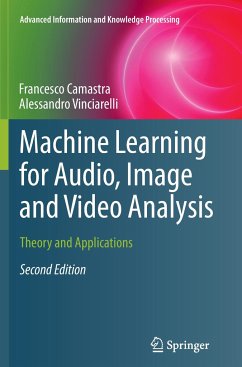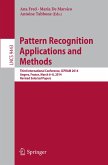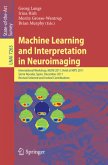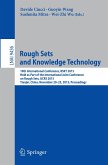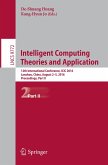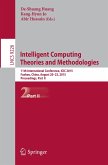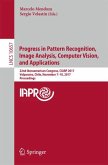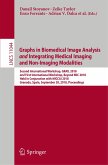This second edition focuses on audio, image and video data, the three main types of input that machines deal with when interacting with the real world. A set of appendices provides the reader with self-contained introductions to the mathematical background necessary to read the book.
Divided into three main parts, From Perception to Computation introduces methodologies aimed at representing the data in forms suitable for computer processing, especially when it comes to audio and images. Whilst the second part, Machine Learning includes an extensive overview of statistical techniques aimed at addressing three main problems, namely classification (automatically assigning a data sample to one of the classes belonging to a predefined set), clustering (automatically grouping data samples according to the similarity of their properties) and sequence analysis (automatically mapping a sequence of observations into a sequence of human-understandable symbols). The third partApplications shows how the abstract problems defined in the second part underlie technologies capable to perform complex tasks such as the recognition of hand gestures or the transcription of handwritten data.
Machine Learning for Audio, Image and Video Analysis is suitable for students to acquire a solid background in machine learning as well as for practitioners to deepen their knowledge of the state-of-the-art. All application chapters are based on publicly available data and free software packages, thus allowing readers to replicate the experiments.
Divided into three main parts, From Perception to Computation introduces methodologies aimed at representing the data in forms suitable for computer processing, especially when it comes to audio and images. Whilst the second part, Machine Learning includes an extensive overview of statistical techniques aimed at addressing three main problems, namely classification (automatically assigning a data sample to one of the classes belonging to a predefined set), clustering (automatically grouping data samples according to the similarity of their properties) and sequence analysis (automatically mapping a sequence of observations into a sequence of human-understandable symbols). The third partApplications shows how the abstract problems defined in the second part underlie technologies capable to perform complex tasks such as the recognition of hand gestures or the transcription of handwritten data.
Machine Learning for Audio, Image and Video Analysis is suitable for students to acquire a solid background in machine learning as well as for practitioners to deepen their knowledge of the state-of-the-art. All application chapters are based on publicly available data and free software packages, thus allowing readers to replicate the experiments.

